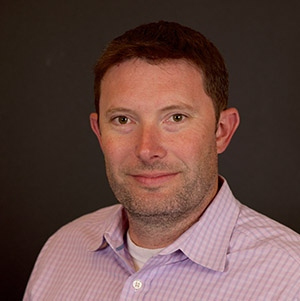Jason Jeffries

August 10, 2020
What do you like about working at the Lab?
I enjoy the opportunity to solve materials physics problems in support of national security missions. Experimental, condensed-matter physics offers a wealth of emergent phenomenon, like many branches of physics, but the experiments are often more accessible, permitting rapid hypothesis development and testing. The Lab is serious about solving problems in its broad mission space, so I have had the opportunity to perform research with cutting-edge tools and world-renowned experts, which is a truly exciting way to spend and build a career.
What is one project you’re really proud to have worked on?
Several years ago, I proposed a research project to examine actinide-bearing quantum materials. I am proud of that project for several reasons:
- It allowed me to recruit a top-notch postdoc who is still at the Lab contributing to critical problems.
- It helped to put the finishing touches on a tailored materials synthesis lab that now supports myriad programs across multiple directorates at the Lab.
- Several graduate students, all of whom have taken postdoctoral positions at national labs, performed portions of their thesis under its auspices.
- It produced a number of high-quality papers that reinforced the Lab’s reputation of expertise in actinide science and condensed-matter physics.
What inspired you to go into your field of work?
I first became fascinated with physics in high school. I read Kip Thorne’s Black Holes and Time Warps, and I was hooked on the concept of exploring nature and figuring out how the universe works; astrophysics and cosmology were my introduction to the broad field of physics.
Once I started studying physics, I “discovered” that condensed-matter physics was as rich with weird ideas and objects as astrophysics/cosmology, but these things were much closer to home. I could touch a sample, measure its properties in the laboratory, and then perturb that and do it all over again to see what changed. This was flat-out cool, and it seemed like I could find much less enjoyable pursuits—so a condensed-matter physicist I became.
What is your educational or career background?
I have a BS in physics from Clemson University in South Carolina, and a PhD in physics from the University of California, San Diego. I took a postdoctoral position at LLNL after graduating with my PhD, and I was converted to a staff member working on actinide materials physics and metallurgy. My career path at the Lab has been one of basic and applied science with cross-disciplinary reach. Over time, I gradually shifted from a role of a worker in a Lab to a technical project manager.
What do your day-to-day work activities include?
My daily work scope generally revolves around technical project management. I manage the technical scope and interactions of interdisciplinary groups of scientists engaged in theoretical and experimental research into materials compatibility, component failure, thermophysical properties, mechanical behavior, and chemical change. These seemingly disparate fields overlap in many mission spaces, and those overlaps are often areas where gaps in our understanding become obvious and need to be addressed. Aligning the “right” group of experts to fill in these gaps is both challenging and rewarding.
What advice would you give to a new employee at the Lab?
My advice is really for a new scientist at the Lab: The Lab is a big academic ecosystem in a small footprint. Take advantage of the wide variety of research and tools by collaborating with others on new topics. If you’ve taken a postdoc position here that follows along the path of your graduate studies, then use some of your time to do something different. If you’ve taken a postdoc in a new field, see if you can spend some of your time working on your old field with Lab researchers. You will meet new people, learn new techniques, and you will become a broader and better scientist.
What do you do in your free time?
I am a father and a husband, which means my free time is often spent with the “business” of a family. Part of that responsibility, which is probably a hobby, is being a handyman with car repair, home repair, plumbing repair, etc. When younger, I played guitar and I still have one acoustic guitar. The coronavirus pandemic gave me the time and locality to pick up the guitar once again and try to accompany my son’s piano.
Learn more about Jason:
Biography




